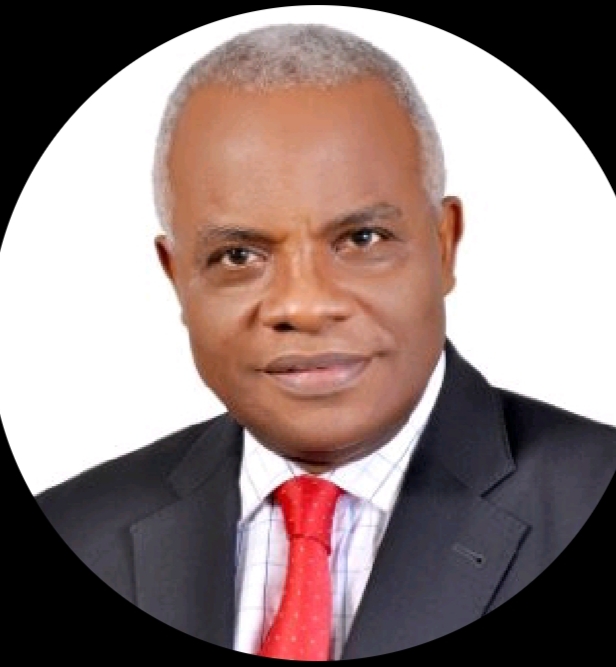Choosing a career is an important part of growing up, a career is an occupation or a profession one does through their lifetime, it sometimes is the person's identity, it's important one takes this decision very carefully.
In this edition, we would look into the medical profession, to do this we are meeting with a medical practionner with a clot of experience, so he can tell us what it means to be a medical practionner.
A medical practionner is an individual accredited, licensed and registered as a health professional upon meeting specified requirements.
So we introduce to you, Professor E.A.D. Alikor, a Professor of Paediatrics, the University of Port Harcourt Teaching Hospital.
|
Sir, kindly introduce yourself
and tell us your professional achievements. practicing in Port Harcourt,
Nigeria. I qualified as a medical doctor in June, 1980 from the University of
Ibadan. Since then I have been in the practice of medicine. I do not think I
have any professional achievement
worthy
of special mention.
We are still working and hoping that we may one day achieve something. To be a medical doctor means
that people look up to you and expect you to conduct yourself as a
responsible member of the society; it means that people trust you with their
health, their family and their private matters, and must live up to it; it
means you work, many times at odd hours to help restore the health of people and
contribute in keeping some persons alive. The general job specification
of a medical doctor is to keep any person or persons under his professional
jurisdiction at any given time alive and healthy doing everything within
professional ethical limits. There are many specialty areas
and the list keeps growing larger over time. The commonly known ones are:
Paediatrics (attends to the medical needs of children), Obstetrics and
Gynecology (attends to women from mid-pregnancy to delivery and period just
after delivery as well as general women reproductive organs and functions and
early pregnancy). 5.
When did you begin to plan on becoming a doctor and how did go about
actualizing your plan? The
major benefit of the medical profession to the practitioner is the inner joy
of having the opportunity to be part of the means in health of persons is
restored or maintained. There is a feeling one gets of doing something
worthwhile. Although it getting tougher these days for young medical doctors
to get a job after training, it is still, on the average, faster to do so
than for many other disciplines. Furthermore, as with some other professions,
a duly qualified and registered medical doctor can decide to be self employed
after acquiring the necessary experience.
7. What is the average salary of a medical doctor in Nigeria? The remuneration of a medical doctor in Nigeria would depend on such factors as: his/her employer (i.e. government, established corporate organization, smaller private hospital or self-employed), the doctor's level of experience and the specialty. All in all, weighed against the long training, the rigors of the training, the long hours of work and the value of his service to the receiver, the average remuneration of the Nigerian doctor is just modest, many would say low.
8.
What are the challenges of being a medical doctor? |
9. On a lighter note, what unforgettable experience have you had in course of your practise?
With almost 38 years in practice, this is a difficult question. I will just pick one positive one. A one-day old newborn baby was rushed into the private hospital I worked by his father, uncle and a host of other relatives. He was dying. The colour was paper white, he had a swollen head and, within five minutes of arrival, was gasping. The baby needed blood immediately, in minutes. I gave the father a sample of baby's blood to go to a nearby government hospital to get blood for transfusion into the child. Within one minute of the father and some of the relatives leaving for blood, it was obvious the baby could not wait for the time it will take to get to the government hospital, pass through the formalities, have the necessary screening done and race back to our place to transfuse the baby. The baby was dying with all of us watching. I got the nurse on duty to put a tourniquet in my upper arm, appropriately cleaned the skin and took out 20ml of blood with syringe which I immediately pushed into the baby. We watched the baby's colour change even with just 20ml blood, then some movements and by the time we just started the second 20ml of blood, the little baby sneezed and cried.
Please note that I already knew I was a universal donor by blood group and had just recently screened my blood. After the baby was discharged, I saw him again when he was about three years old. The parents said they came because they wanted me to see " your (my) child". Experiences like this, and many other unforgettable ones, keep one going in the profession; and if it is even for them only and nothing else, the profession is a divine opportunity and worth it.
Previous Next